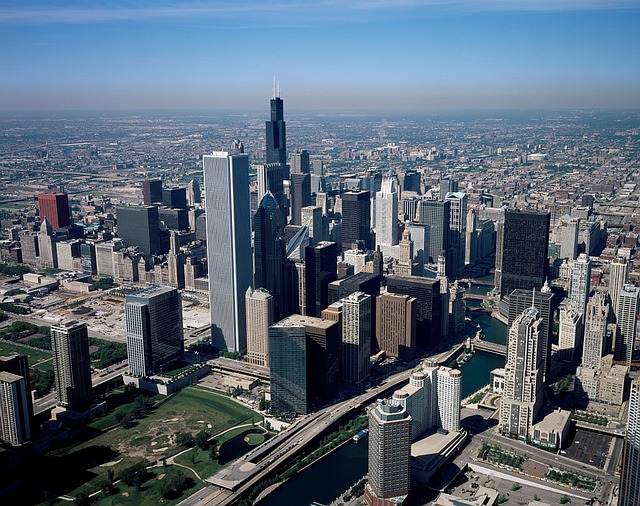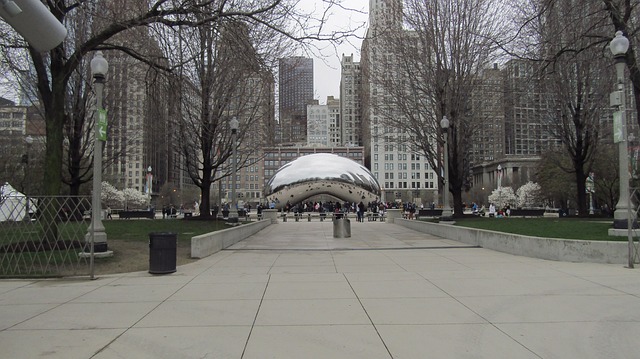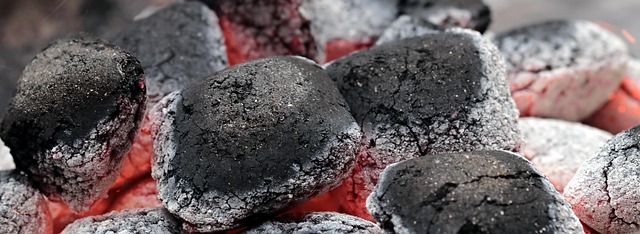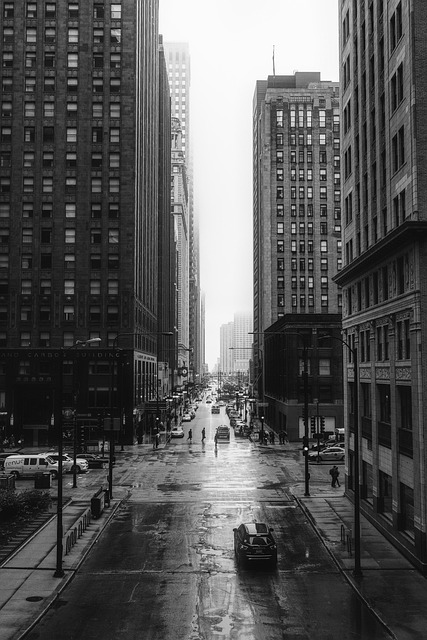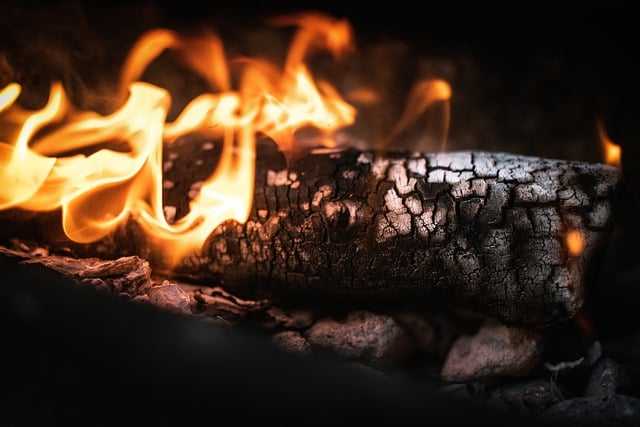Selling a fire-damaged home in Chicago requires understanding the intricate fire damage assessment process and repair estimate calculation. Homeowners should be involved, ensuring communication with licensed contractors who use industry standards and software to accurately determine costs influenced by property size, age, materials, and local building codes. Navigating insurance claims and adhering to Chicago's competitive real estate market demands strategic feasibility assessments, transparent marketing, and expert guidance to attract investors and successfully sell fire-damaged properties.
“In Chicago, fire damage repair estimates are a crucial step towards rebuilding and recovery. This comprehensive guide explores the intricate process of assessing and repairing fire-damaged homes, from initial assessments to navigating insurance claims. We delve into key factors influencing restoration costs in Chicago properties, offering insights for homeowners and real estate professionals. Understanding these aspects is essential when selling a fire-damaged house in Chicago, ensuring a smooth transition towards new beginnings.”
- Understanding Fire Damage Assessments: What to Expect in Chicago
- The Process of Generating Accurate Repair Estimates for Fire-Damaged Homes
- Key Factors Influencing Fire Damage Restoration Costs in Chicago Properties
- Navigating Insurance Claims for Fire Damage Repair: A Step-by-Step Guide for Chicago Homeowners
- Selling a Fire-Damaged House in Chicago: Tips for Real Estate Professionals
Understanding Fire Damage Assessments: What to Expect in Chicago
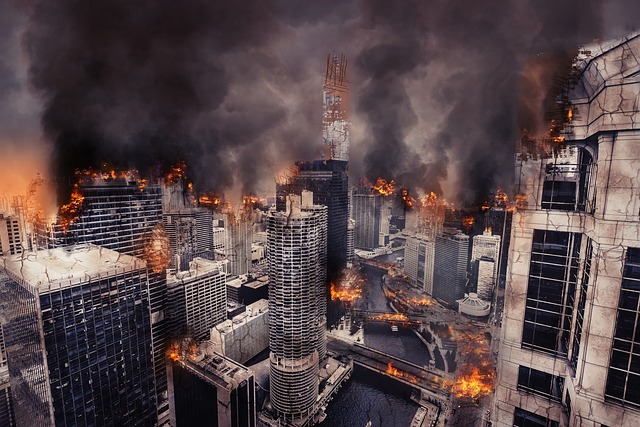
When a fire strikes, understanding the fire damage assessment process is crucial for anyone looking to sell their fire-damaged home in Chicago. The first step is a thorough inspection by professionals who will evaluate every aspect of your property’s damage—from structural integrity and smoke residue to water damage from firefighting efforts. This comprehensive assessment is essential for determining the scope of repairs needed, which directly impacts the cost of rebuilding.
In Chicago, fire damage repair estimates often include detailed breakdowns of labor and material costs. Restoring a home can range from minor repairs like replacing burnt carpets to extensive renovations such as structural repairs and electrical work. It’s important for homeowners to be present during these assessments to communicate their goals and ensure the estimate aligns with their expectations, especially when planning to sell the property afterward.
The Process of Generating Accurate Repair Estimates for Fire-Damaged Homes
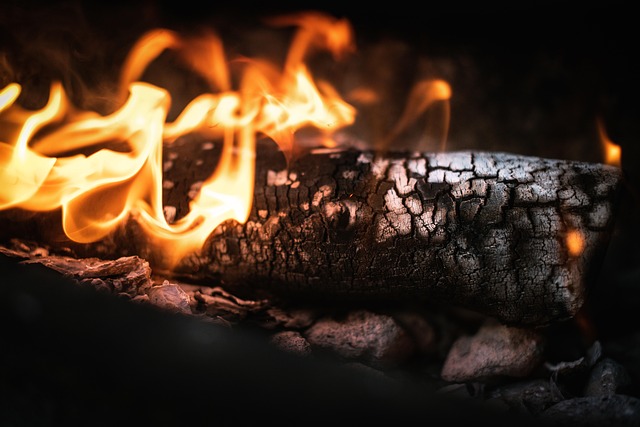
When a home in Chicago suffers from fire damage, accurate repair estimates are crucial for both homeowners and contractors. The process begins with a thorough inspection of the affected areas. Experienced professionals assess the extent of the damage, noting charred walls, smoke stains, and structural integrity issues. They meticulously document every detail, including the size of the affected spaces, materials used in construction, and the type and intensity of the fire.
Next, they cross-reference these findings with standardized guidelines and local building codes to determine replacement costs for damaged items, from flooring and cabinetry to electrical systems. Using specialized software or manual calculation methods, these estimates are generated, ensuring that every repair is accounted for in a comprehensive, fair, and accurate manner. This meticulous approach facilitates effective communication between homeowners seeking to sell fire-damaged houses in Chicago and contractors providing repair services.
Key Factors Influencing Fire Damage Restoration Costs in Chicago Properties

When it comes to fire damage repair estimates in Chicago properties, several key factors significantly influence the restoration costs. First and foremost, the extent of the fire damage is a primary determinant. Minor fires may result in superficial charring or smoldering, while severe blazes can leave extensive structural damage, blacken walls, melt insulation, and destroy valuable possessions. The size and complexity of the property also play a crucial role; larger homes with intricate architectural details often require more time and resources for restoration compared to smaller apartments.
Another critical factor is the location within Chicago. Urban areas with higher property values tend to have more expensive repair costs due to the increased cost of labor and materials. Additionally, the age of the building matters; older structures may need specialized restoration techniques to preserve historical elements, adding to the overall expense. Lastly, the presence of hazardous materials, such as asbestos or lead paint, can complicate the restoration process, necessitating extra safety precautions and licensed professionals, thereby increasing the cost of fire damage repair in Chicago properties.
Navigating Insurance Claims for Fire Damage Repair: A Step-by-Step Guide for Chicago Homeowners

Navigating insurance claims for fire damage repair can be a complex process, but Chicago homeowners don’t have to go it alone. Here’s a step-by-step guide to help you through the journey:
1. Document and Secure the Scene: After a fire, prioritize safety and ensure everyone is out of harm’s way. Next, document the damage by taking photos and videos of affected areas. This visual evidence will be crucial for your insurance claim. Save all receipts related to immediate necessities like temporary housing or clothing.
2. Contact Your Insurance Provider: Notify your insurance company as soon as possible. Provide them with accurate details about the incident, including the date, time, and extent of damage. They will assign a claims adjuster who will inspect the property and assess the repairs needed. Keep open lines of communication, providing updates and responding to any requests for additional information.
3. Obtain Multiple Fire Damage Repair Estimates: While your insurance company may provide a list of approved contractors, don’t hesitate to get estimates from multiple reputable firms. This ensures you have options and helps ensure fair pricing. Make sure the estimates are detailed, itemizing labor and material costs. For Chicago homeowners considering selling their fire-damaged property, these estimates will be valuable in determining potential repair costs versus the current market value.
4. Review Your Policy: Carefully read your insurance policy to understand coverage for fire damage repairs, including deductibles and any specific exclusions or limitations. This knowledge empowers you to make informed decisions during the claims process.
5. Hire a Reputable Contractor: Select a licensed, insured, and experienced contractor for the repair work. Check references and ensure they specialize in fire damage restoration. A reputable contractor will enhance the value of your property, making it more attractive for potential buyers if you decide to sell your Chicago home.
Selling a Fire-Damaged House in Chicago: Tips for Real Estate Professionals
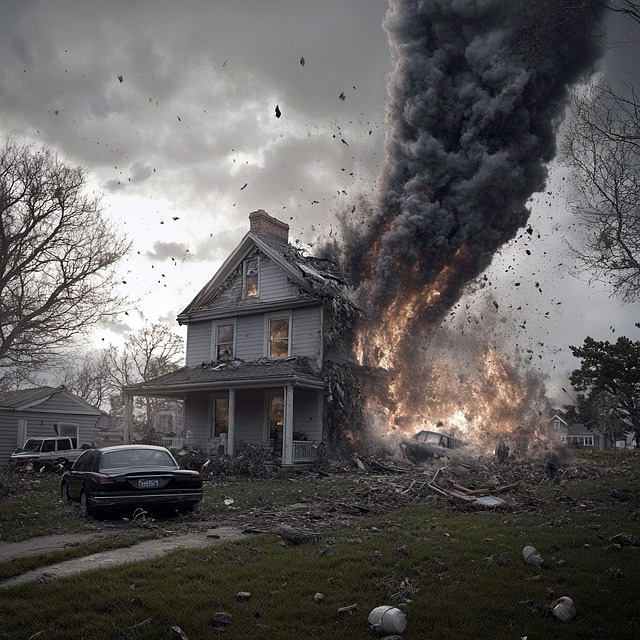
Selling a fire-damaged home in Chicago can be a challenging task, but with the right approach, real estate professionals can help property owners navigate this difficult process smoothly. The first step is to assess the extent of the damage and determine whether it’s feasible to repair or if reconstruction is needed. In Chicago, where real estate is competitive, accurately evaluating the property’s current state and potential value post-renovation is crucial for setting realistic expectations.
For real estate agents assisting clients in selling a fire-damaged house, providing transparent communication and expertise is key. They should guide homeowners through the process of obtaining accurate repair estimates from qualified contractors, ensuring that all work complies with local building codes. Marketing the property effectively while highlighting its potential after repairs can attract interested buyers who appreciate the transparency and are willing to invest in a home’s transformation.
In conclusion, navigating fire damage repair in Chicago involves understanding detailed assessments, accurate estimate generation, cost influences, insurance claims, and real estate considerations. By familiarizing yourself with these aspects, from assessing damage to selling a fire-damaged house in Chicago, you’ll be better equipped to manage the process effectively. Remember that each scenario is unique, so consult professionals for personalized guidance tailored to Chicago’s specific regulations and market dynamics.
